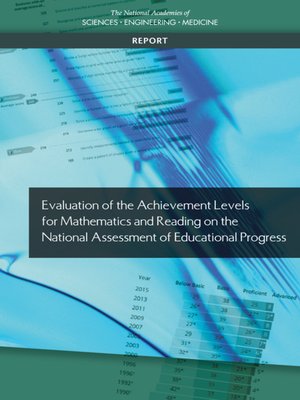Evaluation of the Achievement Levels for Mathematics and Reading on the National Assessment of Educational Progress
ebook
By National Academies of Sciences, Engineering, and Medicine

Sign up to save your library
With an OverDrive account, you can save your favorite libraries for at-a-glance information about availability. Find out more about OverDrive accounts.
Find this title in Libby, the library reading app by OverDrive.



Search for a digital library with this title
Title found at these libraries:
| Loading... |
<p>Since 1969, the National Assessment of Educational Progress (NAEP) has been providing policymakers, educators, and the public with reports on academic performance and progress of the nation's students. The assessment is given periodically in a variety of subjects: mathematics, reading, writing, science, the arts, civics, economics, geography, U.S. history, and technology and engineering literacy. NAEP is given to representative samples of students across the U.S. to assess the educational progress of the nation as a whole.</p>
<p>Since 1992, NAEP results have been reported in relation to three achievement levels: basic, proficient, and advanced. However, the use of achievement levels has provoked controversy and disagreement, and evaluators have identified numerous concerns. This publication evaluates the NAEP student achievement levels in reading and mathematics in grades 4, 8, and 12 to determine whether the achievement levels are reasonable, reliable, valid, and informative to the public, and recommends ways that the setting and use of achievement levels can be improved.</p>






